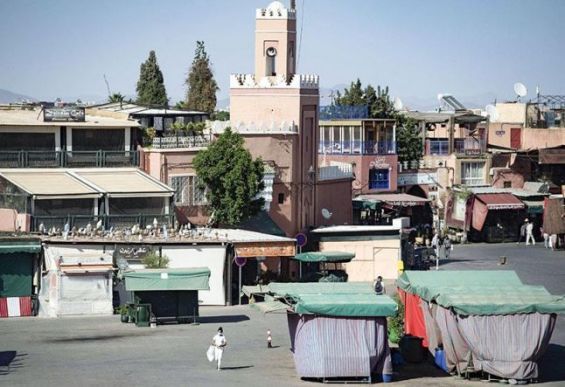Creating a dynamic and inclusive labor market has been an elusive goal for Morocco, the World Bank said this week. In a new report entitled «Morocco’s Jobs Landscape», the financial institution explains that although per capita income «doubled between 2000 and 2018, and the poverty rate fell to one-third of its 2000 level, job creation has not kept up over the past decade», especially during the Covid-19 pandemic.
The study, which represents the first stage of a partnership with Morocco’s planning agency (HCP), lists the challenges related to employment in the country. It gives an in-depth analysis and assessment of concrete policy options to address these challenges. It also refers to the slowing «pace of job creation which is not keeping up with population growth, the shortage of high-quality jobs in high-productivity industries, and the exclusion of many Moroccans, especially women and youth, from the labor market».
The report sheds lights on the low rate of Morocco’s labor force participation compared to the Middle East and North Africa region participation standards. «55% of adults are not in the labor force in the first place», the World Bank showed.
«Inactivity has long been a serious issue, even if it has not received the attention it should receive. This impacts the well-being of individuals and their families and limits the country’s economic development», said Jesko Hentschel, World Bank Director for the Maghreb and Malta.
«The high levels of inactivity among young people is particularly worrying since their early experiences in the labor market are important for their prospects and indeed for the country», he added.
Promoting the formal industry and supporting young people
In order to create more and better jobs and bring more young people and women into the labor market, the analysis suggests several priority areas. Thus, World Bank analysts recommend «structural transformation with workers moving from lower-productivity to higher-productivity activities».
The study also calls for «broader policies that improve productivity and livelihoods within the informal sector would be a key building block for broader economic and social development».
The World Bank also stresses the need of encouraging formal jobs, which requires different types of measures, including reforms of the business environment, reduction of labor costs, or initiatives such as skills development to improve productivity.
The study also suggests «integrating more women into the workforce» and «supporting young people in their transition from studies to the world of work». Although Morocco has made significant progress in the field of education, further improvements are needed to create a workforce capable of stimulating job growth and to help young people obtain highly skilled jobs, the World Bank explained.
«Meeting each of these challenges will be key to improving employment prospects in Morocco. Job strategies also need to consider regional differences, as well as cultural and social factors. The next stage of the 'Morocco’s Jobs Landscape' project will examine concrete policy options to address the factors constraining job creation and widespread participation in the workforce», the study concluded.




 chargement...
chargement...












